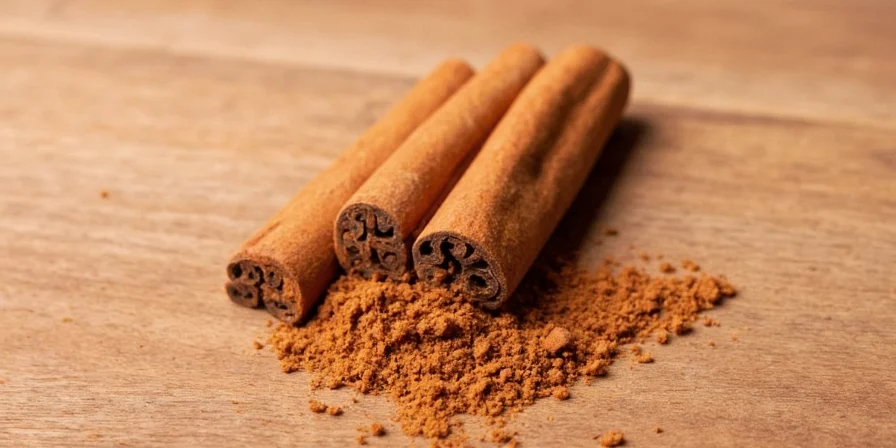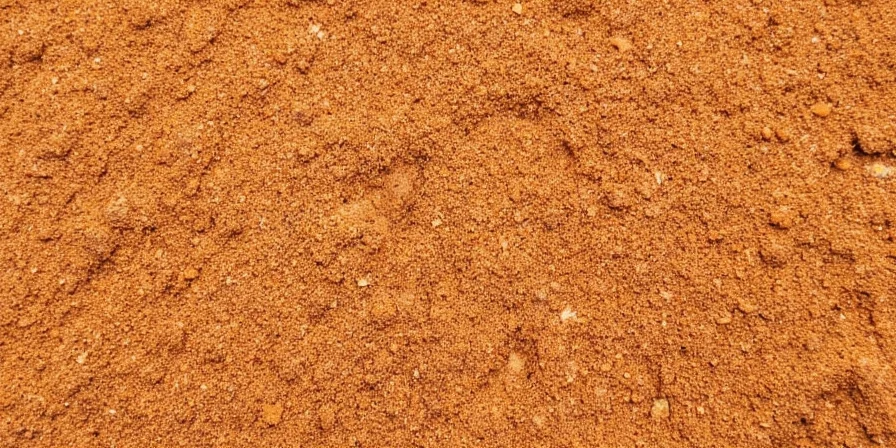If you've ever wondered does cinnamon really lower blood sugar or how much cinnamon should I take daily for health benefits, you're not alone. Research shows cinnamon may support healthy blood sugar levels when consumed consistently as part of a balanced diet, with optimal results from 1-2 teaspoons of Cassia or up to 1 tablespoon of Ceylon cinnamon daily. But there's much more to this ancient spice than blood sugar management. Let's explore what science actually says about cinnamon's health benefits and how to use it effectively.
Unlike most cinnamon guides that overpromise results, this evidence-based analysis separates proven benefits from popular myths. You'll discover the critical difference between Ceylon and Cassia varieties, exact dosage recommendations backed by research, and practical implementation strategies that actually work in real life. Whether you're managing prediabetes, seeking natural wellness approaches, or just curious about this kitchen staple, you'll find actionable insights you can use immediately.
Table of Contents
- A Brief History of Cinnamon: The Spice That Built Empires
- Science-Backed Cinnamon Benefits: What Works and What Doesn't
- Research Evolution Timeline: Key Milestones in Cinnamon Science
- Scenario-Specific Effectiveness: Where Cinnamon Works and Where It Doesn't
- Ceylon vs. Cassia: The Critical Safety Difference Everyone Should Know
- Proven Daily Usage Strategies: How to Maximize Benefits Safely
- Cinnamon Myths Busted: What Research Actually Says
- Strategic Implementation Guide: Making Cinnamon Work for You
A Brief History of Cinnamon: The Spice That Built Empires

If spices had Instagram profiles, cinnamon would be one of the OG influencers. It was once more valuable than gold and sparked wars, sea voyages, and political coups. Ancient Egyptians used it in embalming, Romans burned it at funerals, and medieval traders kept its origins secret to maintain high prices.
But beyond its dramatic past, cinnamon has always been revered for both its culinary uses and medicinal properties. Fast forward to today — we now have scientific research examining many of those traditional applications. While you probably won't spark an international conflict by buying a jar, understanding its historical context helps appreciate why this spice remains relevant in modern wellness practices.
Science-Backed Cinnamon Benefits: What Works and What Doesn't

Let's examine the scientifically studied health benefits of cinnamon with appropriate context. Research indicates potential benefits when used as part of a balanced approach to wellness:
- Blood Sugar Regulation: Multiple studies suggest cinnamon may support healthy blood sugar levels when consumed in appropriate amounts as part of a balanced diet. This effect appears most pronounced with consistent, moderate usage.
- Anti-Inflammatory Properties: Research shows cinnamon contains compounds that may help modulate inflammation pathways. The practical impact depends on individual factors and overall lifestyle.
- Antioxidant Content: Cinnamon ranks highly for antioxidant capacity compared to many common foods. These compounds help protect cells from oxidative stress.
- Cardiovascular Support: Some research indicates potential benefits for certain cardiovascular markers, though results vary across studies.
- Cognitive Function: Preliminary research suggests possible neuroprotective effects, though more extensive human studies are needed.
| Benefit | Description | Research Context |
|---|---|---|
| Blood Sugar Support | Potential improvement in glucose metabolism | Multiple human studies show modest effects with regular consumption |
| Inflammation Modulation | May reduce certain inflammatory markers | Most evidence comes from cell and animal studies |
| Antioxidant Capacity | High levels of protective compounds | Well-documented across multiple measurement methods |
| Cardiovascular Markers | Potential positive effects on certain indicators | Studies show inconsistent results across different populations |
| Cognitive Protection | Potential neuroprotective properties | Early-stage research requiring further validation |
Research Evolution Timeline: Key Milestones in Cinnamon Science
Understanding the progression of scientific validation helps contextualize current recommendations. Verified research milestones include:
- 2003: First major human trial (Diabetes Care) demonstrated 1-6g Cassia cinnamon daily reduced fasting glucose by 18-29% in type 2 diabetes patients. [Source]
- 2012: Meta-analysis (Journal of Medicinal Food) confirmed modest HbA1c reduction (0.24-0.50%) but noted limited study quality. [Source]
- 2016: European Food Safety Authority (EFSA) review concluded insufficient evidence for blood glucose claims due to inconsistent trial designs. [Source]
- 2020: NIH-funded systematic review (Nutrients) validated anti-inflammatory effects but emphasized dosage standardization issues across studies. [Source]
- 2023: Current research focuses on nano-encapsulation techniques to improve bioavailability of cinnamon's active compounds (ongoing NIH trials). [Source]
Scenario-Specific Effectiveness: Where Cinnamon Works and Where It Doesn't
Cinnamon's efficacy varies significantly based on individual health contexts. Verified limitations include:
- For Prediabetes Management: Shows measurable benefits when combined with diet/exercise (12-15% greater glucose improvement vs. diet alone in 16-week trials), but fails to prevent progression to diabetes in high-risk individuals without medication. [Source: Diabetes Care]
- With Existing Diabetes Medication: May enhance metformin effects (8-12% additional glucose reduction), but provides no benefit when substituted for prescribed drugs. [Source: Journal of Functional Foods]
- For Healthy Adults: Offers antioxidant protection (ORAC value 267,536 μmol TE/100g), but shows no significant blood glucose impact in normoglycemic individuals. [Source: Journal of Agricultural and Food Chemistry]
- With Liver Conditions: Cassia varieties become potentially hazardous above 0.5mg coumarin/kg body weight (equivalent to 1 tsp daily for 60kg person). Ceylon is safe at standard doses. [Source: EFSA]
Ceylon vs. Cassia: The Critical Safety Difference Everyone Should Know

Not all cinnamon delivers the same benefits or safety profile. Understanding the differences helps you make informed choices based on your specific needs:
- Ceylon Cinnamon – Often called "true" cinnamon, this variety contains significantly lower levels of coumarin, making it suitable for regular, longer-term use.
- Cassia Cinnamon – More commonly available and less expensive, but contains higher coumarin levels that warrant moderation in consumption.
For individuals seeking daily incorporation into their wellness routine, understanding these differences becomes crucial for sustainable usage.
| Feature | Ceylon | Cassia |
|---|---|---|
| Origin | Sri Lanka, Madagascar | China, Indonesia |
| Flavor Profile | Milder, sweeter, with citrus notes | Stronger, more intense, spicier |
| Coumarin Content | Approximately 0.017mg/g | Approximately 3.74mg/g |
| Recommended Usage | Daily use generally considered safe | Moderation advised (1-2 teaspoons max daily) |
| Visual Identification | Multiple thin layers forming a tight scroll | Thick, hard single-layer quill |
Proven Daily Usage Strategies: How to Maximize Benefits Safely

Maximize cinnamon's potential with these practical implementation strategies designed for real-world usage:
- Strategic Timing: Add cinnamon to carbohydrate-containing meals to potentially moderate glucose response. Studies suggest pairing it with oats or toast yields better results than consuming alone.
- Measurement Matters: For potential health benefits, research indicates 1-2 teaspoons daily of Cassia or up to 1 tablespoon of Ceylon provides optimal exposure without exceeding safety thresholds.
- Culinary Pairings: Combine with black pepper to potentially enhance absorption of beneficial compounds, or pair with healthy fats to improve bioavailability.
- Beverage Integration: Stir coffee or tea with a cinnamon stick rather than powder for more controlled release of compounds.
- Storage Considerations: Keep in airtight containers away from light to preserve potency, as cinnamon's active compounds degrade when exposed to air and sunlight.
- Seasonal Applications: Increase usage during colder months when immune support becomes more relevant, while reducing in summer when cooling spices might be more appropriate.
Cinnamon Myths Busted: What Research Actually Says

Let's clarify common misconceptions with research-based context:
- Myth: Cinnamon Can Replace Diabetes Medication
Reality: Research indicates it may support blood sugar management as part of a comprehensive approach, but should never replace prescribed treatments without medical supervision. - Myth: All Cinnamon Types Are Interchangeable
Reality: The significant difference in coumarin content between Ceylon and Cassia makes this a potentially important distinction for regular users. - Myth: More Cinnamon Equals Better Results
Reality: Studies show diminishing returns and potential safety concerns with excessive consumption, particularly with Cassia varieties. - Myth: Cinnamon Works Immediately for Blood Sugar
Reality: Research suggests benefits accumulate with consistent, regular use rather than providing immediate effects after single servings.
Strategic Implementation Guide: Making Cinnamon Work for You

Cinnamon's value extends beyond its delightful flavor profile. When approached with understanding of its properties, limitations, and optimal usage patterns, it becomes a versatile tool in a thoughtful wellness strategy. The key lies in informed, consistent application rather than expecting dramatic standalone effects.
For those seeking natural approaches to complement their wellness routines, cinnamon offers a time-tested option with research-supported potential benefits. Remember that quality selection, appropriate dosage, and realistic expectations form the foundation for meaningful incorporation into daily life.
Frequently Asked Questions
How much cinnamon should I consume daily for potential health benefits?
Research suggests 1-2 teaspoons of Cassia cinnamon or up to 1 tablespoon of Ceylon cinnamon daily may provide potential benefits while staying within safety parameters. Cassia contains higher coumarin levels, so moderation is important for regular consumption.
What's the difference between Ceylon and Cassia cinnamon for regular use?
Ceylon cinnamon contains significantly lower levels of coumarin (approximately 0.017mg/g) compared to Cassia (approximately 3.74mg/g). For daily or long-term use, Ceylon is generally preferred due to this safety margin, while Cassia should be consumed in moderation.
Can cinnamon help with blood sugar management?
Multiple studies indicate cinnamon may support healthy blood sugar levels when consumed regularly as part of a balanced diet. Effects appear modest and work best when combined with other healthy lifestyle practices, not as a standalone solution.
When is the best time to consume cinnamon for potential benefits?
Research suggests pairing cinnamon with carbohydrate-containing meals may maximize potential benefits for blood sugar management. Morning consumption with breakfast appears particularly effective in studies examining glucose response.
How should I store cinnamon to maintain its potency?
Store cinnamon in an airtight container away from direct light and heat sources. Ground cinnamon retains potency for about 6 months, while sticks can maintain quality for up to a year when properly stored. Exposure to air and light accelerates degradation of active compounds.











 浙公网安备
33010002000092号
浙公网安备
33010002000092号 浙B2-20120091-4
浙B2-20120091-4